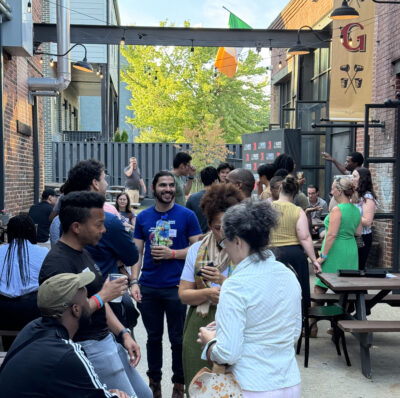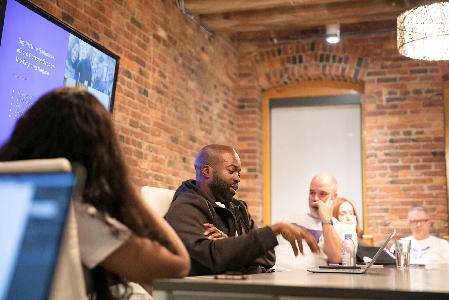This is Technically Baltimore’s One Big Idea. We’d like to use this space to allow technologists, community organizers, activists and other thought leaders in Baltimore city propose one idea for making this city a better place to live and work.
You might know Jennifer Gunner from her role helping to organize Ignite Baltimore 11. She’s also a co-organizer of TEDxBaltimore, taking place in January.
But her day job is chief operating officer with the Economic Alliance of Greater Baltimore, an organization intent on marketing Baltimore city as a destination for people to “work, learn and invest.” Gunner brings us this week’s One Big Idea: she wants to help startup companies in Baltimore city become “high-growth enterprises.”
Here’s Gunner:
A great deal of attention is given to entrepreneurs and startups as catalysts of economic activity, and rightfully so: in the last 30 years, high-growth enterprises less than five years old have created 40 million net new jobs, driving the majority of job creation in the U.S. Communities therefore must support growth companies in order to have sustainable economic expansion, new economic opportunity and new jobs.
We need to make it easy for them to grow their business by removing or limiting obstacles that exist along their path to success. Looking at it from this perspective, communities should lead from behind. Growth companies are led by focused individuals who have the capability and experience to do many things exceptionally well. As such, growth company leaders are able to determine and isolate areas of improvement that affect their business. The challenge they face is a lack of resources and support to resolve these issues.
What we need to do as a community is provide the opportunity to ask for, and receive, help. Help can’t come with strings attached. If we let growth company leaders do what they do best, building a successful, entrepreneurial company, we can provide support along the way. The result will be more high-growth businesses that create more jobs, generate a greater economic impact and potentially give back to the community. If the businesses and community collaborate, we can foster a virtuous cycle of growth.
Maryland has a highly skilled, well educated workforce. The presence of such valuable human capital puts us in a competitively advantageous position, but the community surrounding our innovators plays an important role too. So how can we actually help growth companies?
As a community, we can provide the resources and connections to help companies with:
- Core strategy: helping growth companies deal with changes in strategic direction and business model development.
- Market dynamics: assisting growth companies in assessing their unique relationship between company, customer and industry.
- Clients: identifying markets and customers to support the company as it grows and evolves.
- Management team: helping growth companies identify new talent to meet changing organizational goals.
- Network: connecting them to individuals who can best serve and support their needs.
These efforts are not focused on a single industry. Growth companies span a variety of industries and our region is ripe with opportunity to help move them to the next level.
So my one big idea is actually very simple. When someone asks you for help, don’t ask them why, ask them how. The virtuous cycle of growth will happen if we work together and let it happen.
Before you go...
Please consider supporting Technical.ly to keep our independent journalism strong. Unlike most business-focused media outlets, we don’t have a paywall. Instead, we count on your personal and organizational support.
3 ways to support our work:- Contribute to the Journalism Fund. Charitable giving ensures our information remains free and accessible for residents to discover workforce programs and entrepreneurship pathways. This includes philanthropic grants and individual tax-deductible donations from readers like you.
- Use our Preferred Partners. Our directory of vetted providers offers high-quality recommendations for services our readers need, and each referral supports our journalism.
- Use our services. If you need entrepreneurs and tech leaders to buy your services, are seeking technologists to hire or want more professionals to know about your ecosystem, Technical.ly has the biggest and most engaged audience in the mid-Atlantic. We help companies tell their stories and answer big questions to meet and serve our community.
Join our growing Slack community
Join 5,000 tech professionals and entrepreneurs in our community Slack today!





